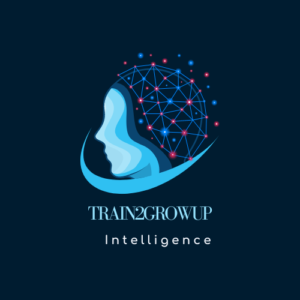Data Science & Business Analytics
Data Science & Business Analytics are interdisciplinary fields that leverage data to make informed decisions, optimize business processes, and predict future trends. These fields combine statistical analysis, machine learning, data mining, and business strategy to extract actionable insights from large and complex datasets
Why Join this Program?
Learn Popular No Code AI Tools
Gain exposure to DataRobot, Dataiku, Amazon SageMaker Canvas, and other prominent tools
Career Support Services
Enhance your resume and showcase your profile to recruiters with career assistance services
Advantage of Data Science & Business Analytics
Here are some key advantages of Data Science & Business Analytics:
- Informed Decision-Making:
- Enables organizations to make data-driven decisions, reducing uncertainty and improving strategic planning.
- Competitive Advantage:
- Helps businesses stay ahead of competitors by identifying trends, predicting outcomes, and optimizing operations.
- Improved Customer Insights:
- Analyzes customer data to understand behavior, preferences, and needs, leading to personalized marketing and enhanced customer satisfaction.
- Operational Efficiency:
- Streamlines processes by identifying inefficiencies, optimizing resource allocation, and reducing costs.
- Predictive Analytics:
- Forecasts future trends and outcomes, helping businesses prepare and adapt to changing market conditions.
- Risk Management:
- Assesses risks by analyzing historical data and identifying potential issues before they arise, allowing for proactive risk mitigation.
- Innovation and New Opportunities:
- Uncovers new market opportunities and product ideas through data analysis, fostering innovation and growth.
- Enhanced Performance Tracking:
- Monitors key performance indicators (KPIs) in real-time, enabling continuous improvement and quick response to issues.
Key factors of Data Science & Business Analytics:
- Data Quality and Management:
- High-quality, accurate, and well-managed data are crucial for reliable analysis and decision-making. Proper data governance ensures consistency and accessibility.
- Statistical Analysis and Modeling:
- Applying statistical methods to identify patterns, relationships, and trends within data is fundamental for making informed predictions and decisions.
- Machine Learning and AI:
- Leveraging machine learning algorithms and artificial intelligence to automate analysis, uncover insights, and predict future outcomes with higher accuracy.
- Data Visualization:
- Effective visualization techniques are essential for interpreting complex data, making insights more accessible, and communicating findings clearly to stakeholders.
- Domain Expertise:
- Understanding the specific industry or business context is key to interpreting data correctly and applying the right analytical techniques.
- Business Understanding:
- Aligning data science initiatives with business goals ensures that analytics efforts drive real value and support strategic decision-making.
- Ethics and Compliance:
- Adhering to ethical standards and legal regulations around data usage and privacy is critical to maintaining trust and avoiding legal repercussions.
- Technological Infrastructure:
- Robust and scalable IT infrastructure is necessary to handle large datasets, perform complex analyses, and support data science tools and applications.
- Interdisciplinary Collaboration:
- Successful data science projects often require collaboration across different departments, combining technical expertise with business insights.
- Continuous Learning and Adaptation:
- The field of data science is rapidly evolving, so staying up-to-date with the latest tools, techniques, and trends is vital for maintaining a competitive edge.
Learning Path:
This course provides a comprehensive introduction to the fields of data science and business analytics. It is designed to equip learners with the tools and techniques needed to analyze and interpret complex data sets, make data-driven decisions, and leverage data for strategic business advantages.
- Understand the fundamentals of data science and business analytics.
- Gain proficiency in data collection, cleaning, and preprocessing.
- Learn statistical methods and machine learning techniques for data analysis.
- Develop skills in data visualization and storytelling.
- Apply data-driven insights to solve real-world business problems.
- Understand the ethical considerations in data science and analytics.
- Business professionals looking to enhance their analytical skills.
- Aspiring data scientists and analysts.
- Managers and decision-makers seeking to leverage data for business growth.
- IT professionals transitioning to a data-driven role.
- Overview of Data Science and Analytics
- Importance of Data-Driven Decision Making
- Industry Applications
- Data Collection Techniques
- Data Cleaning and Transformation
- Handling Missing Data and Outliers
- Descriptive Statistics
- Data Visualization Techniques
- Identifying Patterns and Trends
- Probability Theory and Distributions
- Hypothesis Testing
- Regression Analysis
- Introduction to Machine Learning
- Supervised vs. Unsupervised Learning
- Key Algorithms: Linear Regression, Decision Trees, Clustering
- Principles of Effective Data Visualization
- Tools: Tableau, Power BI, Matplotlib
- Storytelling with Data
- Predictive Analytics for Business Forecasting
- Customer Segmentation and Profiling
- Market Basket Analysis
- Ethical Issues in Data Science
- Data Privacy and Security
- Compliance and Regulations
Skills Covered
- Data Collection and Acquisition
- Data Transformation Techniques
- Unsupervised Learning Algorithms
- Support Vector Machines
- Natural Language Processing
- Model Interpretability
- Data Cleaning and Preparation
- Data Integration Techniques
- Techniques for Model Evaluation
- Artificial Neural Networks
- Model Performance Optimization
- Generative AI
- Exploratory Data Analysis EDA
- Supervised Learning Algorithms
- Ensemble Learning Methods
- Text Analytics
- Feature Selection
- Prompt Engineering


